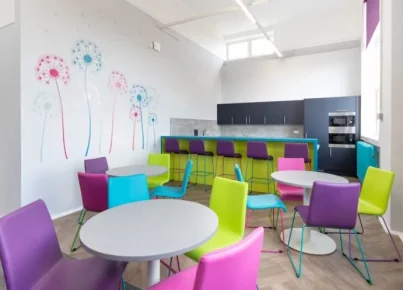Navigating the hallways of high school can be stressful enough, but for many students, there is an additional stressor that grates on their nerves every day: a principal who addresses them by their last names. While some may argue that it’s a sign of respect or formality, many students find the practice antiquated and impersonal.
The History of Addressing by Last Names
Traditionally, addressing individuals by their last names was a way to demonstrate respect and maintain a professional distance between authority figures and their subordinates. Teachers and principals often used this practice as a means of establishing authority and fostering an environment of discipline and order. However, times have changed, and so have the attitudes towards formalities in education.
Formality vs. Connection
Educational research has shown that strong teacher-student relationships are vital in promoting student engagement and academic success. When educators consistently use a student’s last name, it may create a barrier that makes it more difficult for the student to feel supported and understood. As society shifts towards valuing close relationships between teachers, students, and administrators, addressing students by their last names seems out of place in today’s educational landscape.
Lost Personal Identity
For many students, being addressed by their last name can evoke feelings of frustration since it strips away an essential part of their identity: their first name. A first name is unique to each person and plays a significant role in self-identity. By only using last names, authority figures may unintentionally make students feel faceless or robotic.
The Impact on Students
For some students, being called by their last name may lead to feelings of anxiety or discomfort at school. It may even deter them from reaching out to teachers or administrators when they need help or support. By using these outdated tactics in classrooms or around campus, educators risk negatively impacting the emotional well-being of their students.
Archaic or Respectful?
While some argue that using an individual’s last name is a sign of respect and formality, many students see it as an unnecessary barrier between themselves and their education. Furthermore, many teachers are opting to use a more casual approach, addressing students by their first names to bridge the gap, create a sense of rapport, and foster a more nurturing school environment.
Potential Solutions
For administrators who wish to maintain a level of professional distance while still creating a warm and inclusive environment, one potential solution is to use honorifics followed by the student’s first name, such as Mr., Ms., or Mx. This way, educators can convey respect without sacrificing personal connection. Alternatively, principals can adopt the practice of using first names and openly communicate in their school communities about the shift in formality to promote understanding and inclusivity.
In conclusion, being called by one’s last name may seem like a small issue; however, such traditions can significantly impact students’ emotional well-being and overall school experience. By embracing change and fostering strong relationships with all members of the school community, educators can ensure that every student feels valued, connected, and ready to succeed.



